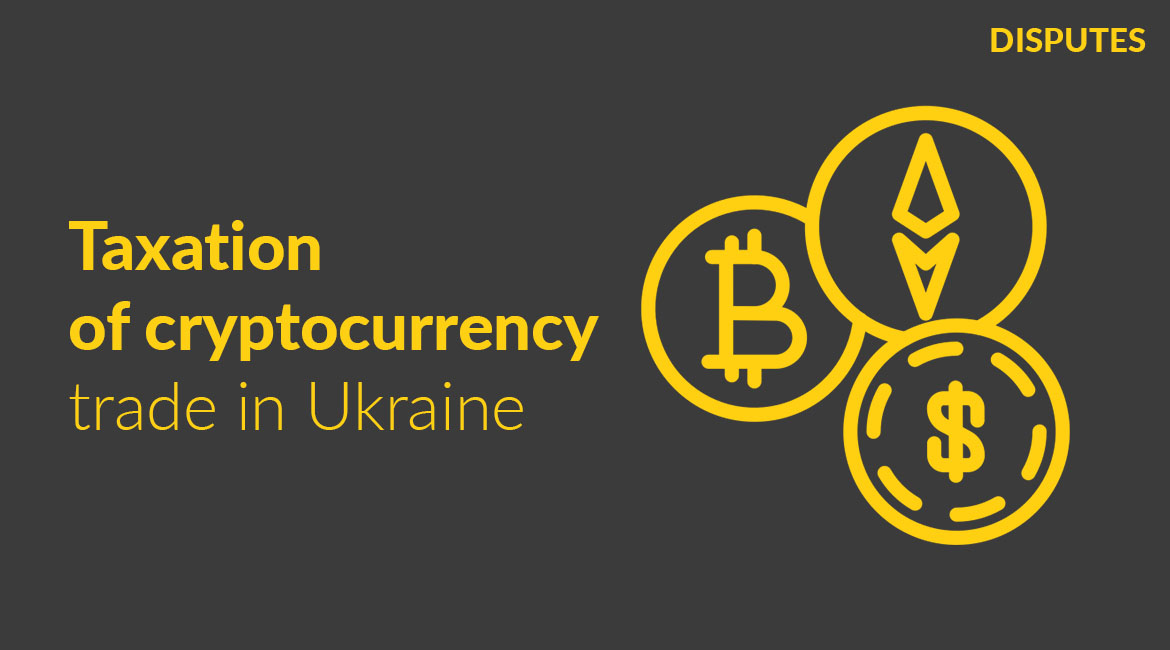In the context of the rapid development of technology and the emergence of new financial instruments, including cryptocurrencies, the issue of taxing such assets is becoming increasingly relevant. In this article, we will discuss the key aspects of taxing cryptocurrency assets for individual entrepreneurs in Ukraine based on a consultation with tax authorities.
Inquiry to the Tax Authority
Our law firm, Disputes Law Firm, submitted an inquiry to the Main Department of the State Tax Service in Kyiv in March 2023 requesting an individual tax consultation on behalf of the Client on the following issues:
- What type (code) of activity according to the Classifier of Economic Activities (KVED) corresponds to the individual purchase and sale of virtual assets (cryptocurrency) for profit if this activity is carried out by an individual entrepreneur.
- Whether an individual entrepreneur on a simplified taxation system has the right to conduct this activity, and on which group of the single tax it is allowed.
- If such activity is not permitted under the simplified taxation system, what amount is included in the taxable income – the entire income from the sale of assets or the difference between the purchase and sale prices.
- Whether the cost of purchasing virtual assets (cryptocurrency) is considered documented expenses related to business activities and, consequently, whether it reduces the tax obligation.
Response from the Tax Authority
We received a response only in January 2024, which significantly exceeded our expectations. After almost a year of "preparing" the tax consultation, we received very little, but it was better than the consultations on internet sites that contain contradictory information. Here is what was noted:
- On February 17, 2022, the Verkhovna Rada of Ukraine adopted Law No. 2074-IX "On Virtual Assets," which regulates the relations arising from the circulation of virtual assets in Ukraine. This law defines the rights and obligations of participants in the virtual assets market and the principles of state policy in this area.
- Law No. 2074 will come into force upon the enactment of the law amending the Tax Code of Ukraine regarding the taxation of operations with virtual assets.
- The tax authority adheres to the current Tax Code, so the taxation of an individual’s activities with virtual assets is possible only after defining the legal status of virtual assets in Ukraine and making the corresponding amendments to the code.
It was also noted that the Classifier of Economic Activities (KVED) approved by the State Committee for Technical Regulation and Consumer Policy is a statistical tool for organizing economic information. For determining the specific type of activity, it is recommended to contact the State Statistics Service of Ukraine.
Types of Activities and Classification by KVED
To determine the type of economic activity for an individual entrepreneur engaged in the purchase and sale of cryptocurrency assets, one must refer to the Classifier of Economic Activities (KVED DK 009:2010). After detailed analysis, the following KVED codes may be relevant:
- Code 63.11 - Data processing, hosting, and related activities.
- Code 64.19 - Other monetary intermediation.
- Code 66.19 - Other activities auxiliary to financial services, except insurance and pension funding.
Such KVEDs can be found on internet sites that provide consultations on legalizing cryptocurrency trading. However, considering the tax authority's response, this does not matter, as the activity of buying and selling cryptocurrencies is not considered entrepreneurial, making it difficult to imagine how the tax authority will treat the receipt of funds obtained from the sale of cryptocurrency assets.
Possibility of Conducting Activities Under Simplified Taxation
The tax authority indicated that conducting activities with virtual assets by an individual entrepreneur under the simplified taxation system is possible only after the legal status of such assets is defined and the relevant amendments to the Tax Code are made. This means that currently, such activity under the simplified system is not regulated by legislation, making it impossible.
Taxation of Income from the Sale of Cryptocurrency Assets
In the case of conducting purchase and sale activities of cryptocurrencies under the general taxation system, the following questions arise:
- Determining taxable income: Whether the entire income from the sale of assets or only the difference between the purchase and sale prices is included in the taxable income.
- Documented expenses: Whether the cost of purchasing cryptocurrency assets is considered business-related expenses that reduce the tax liability.
The tax authority did not provide a clear answer to these questions, as the current legislation does not contain specific provisions on cryptocurrency taxation. Therefore, a business entity, whether an individual entrepreneur or a legal entity, cannot count on reducing tax liabilities by the amount of expenses incurred on the purchase of such cryptocurrency, effectively negating the entire sense of such activity.
Conclusions and Recommendations
Considering the above, the following conclusions can be made:
- Conducting cryptocurrency purchase and sale activities by an individual entrepreneur under the simplified taxation system is currently impossible.
- KVEDs Code 63.11 - Data processing, hosting, and related activities, 64.19 - Other monetary intermediation, 66.19 - Other activities auxiliary to financial services, except insurance and pension funding, look great but do not matter for cryptocurrency trading activities.
- Taxation of income from cryptocurrency operations, and consequently the possibility of conducting such activities, is possible only after making the relevant amendments to the Tax Code of Ukraine.
- Reducing tax liabilities by the amount of expenses incurred on the purchase of such cryptocurrency is currently impossible, making cryptocurrency trading activities meaningless.
We recommend monitoring updates to the legislation on cryptocurrency asset taxation and consulting with tax law specialists for the most current information.
If you have additional questions or need consultation, please contact our law firm, and we will assist you with your legal matters.

 EN
EN  UA
UA 






